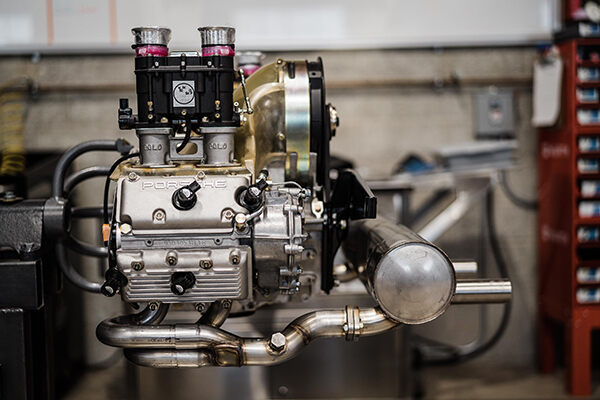What Makes the Polo 4 Engine Perfect for Volkswagen Owners
Wiki Article
Tips for Preserving a High-Performance Engine in Your Polo 4
Maintaining a high-performance engine in your Polo 4 requires an organized strategy to make sure durability and efficiency. As we explore these essential maintenance tips, take into consideration exactly how each one contributes to the overall wellness of your engine.Normal Oil Adjustments
Just how commonly should you prioritize oil changes for optimum engine performance? Regular oil adjustments are necessary for maintaining the wellness and effectiveness of your Polo 4's engine. Typically, it is advised to alter the oil every 5,000 to 7,500 miles, although this may differ based on driving habits and the kind of oil used. Artificial oils, for example, can expand the period due to their premium residential properties.Constant oil changes assist remove impurities and sludge that build up with time, guaranteeing that your engine runs smoothly. Clean oil lubes the inner components, minimizing rubbing and wear, which directly adds to the longevity and performance of the engine. Disregarding this vital maintenance can cause increased engine temperatures and inevitably result in expensive fixings.
Additionally, keeping an eye on the oil degree and quality on a regular basis can provide insights into your engine's condition. If the oil shows up gritty and dark or if the level is regularly reduced, it might show underlying concerns that require attending to. Focusing on normal oil changes is a straightforward yet important action in making certain that your Polo 4 delivers optimal performance, effectiveness, and integrity throughout its life-span.
Air Filter Upkeep
The air filter in your Polo 4 plays a vital function in maintaining engine performance, as it makes certain that just clean air enters the engine for optimal burning. A tidy air filter enables for improved air movement, which can improve engine effectiveness and power output. Disregarding air filter upkeep can bring about lowered performance, increased gas usage, and potential engine damages.
To preserve the air filter, it is vital to examine it regularly, preferably every 10,000 to 15,000 miles or as suggested in your owner's guidebook. When checking the air filter, look for indicators of dirt buildup, damage, or too much wear. If the filter appears clogged or dirty, it ought to be replaced to ensure proper air movement.
When replacing the air filter, constantly utilize a high-quality OEM or compatible filter to keep the engine's performance requirements. In addition, think about cleansing the air filter if it is reusable, following the supplier's guidelines for cleansing and reinstallation.
Gas System Care
Routine gas system treatment is important for pop over to this web-site preserving the efficiency and longevity of your Polo 4's engine. A tidy and effective gas system guarantees ideal gas burning, top article boosting engine power and fuel effectiveness. Begin by routinely examining and changing the gas filter, as a stopped up filter can limit fuel flow, causing engine performance issues. It is typically a good idea to change the gas filter every 30,000 miles or as defined in your vehicle's manual.Additionally, consider utilizing high-grade gas which contains cleaning agents created to maintain your fuel injectors clean. Over time, down payments can gather in the fuel system, resulting in bad engine performance and increased exhausts. To fight this, integrate a fuel system cleaner periodically to get rid of these down payments and maintain injector performance.
Additionally, check fuel lines for any indicators of leaks or wear, as harmed lines can cause fuel loss and safety and security hazards. Lastly, ensure that the gas storage tank is maintained the very least a quarter full to prevent debris from clogging the gas filter and to preserve the fuel pump's air conditioning ability. By sticking to these practices, you can make sure that your fuel system continues to be in peak condition, adding to the general performance of your Polo 4.
Air Conditioning System Checks
Ensuring the air conditioning system Resources in your Polo 4 operates effectively is vital for stopping engine overheating and preserving optimal efficiency (Polo 4). Routine checks of the air conditioning system components, including the radiator, tubes, and coolant levels, are vital to prevent pricey repairs and make sure durabilityNext off, check out the problem of the hose pipes for any kind of signs of wear, such as bulges or cracks, which may lead to leaks. Replacing damaged hose pipes quickly can prevent engine damage.
Additionally, check the radiator for any type of debris or blockages that can hinder air flow. A clean radiator promotes efficient cooling. Focus on the thermostat also; ensure it opens and closes properly to regulate the engine temperature effectively.

Conclusion
In verdict, keeping a high-performance engine in the Polo 4 necessitates adherence to a structured maintenance program. These procedures jointly add to optimal engine performance and longevity, guaranteeing that the vehicle runs successfully and dependably over time.The air filter in your Polo 4 plays an important role in maintaining engine performance, as it makes certain that only tidy air enters the engine for optimal combustion. Overlooking air filter maintenance can lead to decreased performance, boosted fuel usage, and potential engine damage.

Report this wiki page